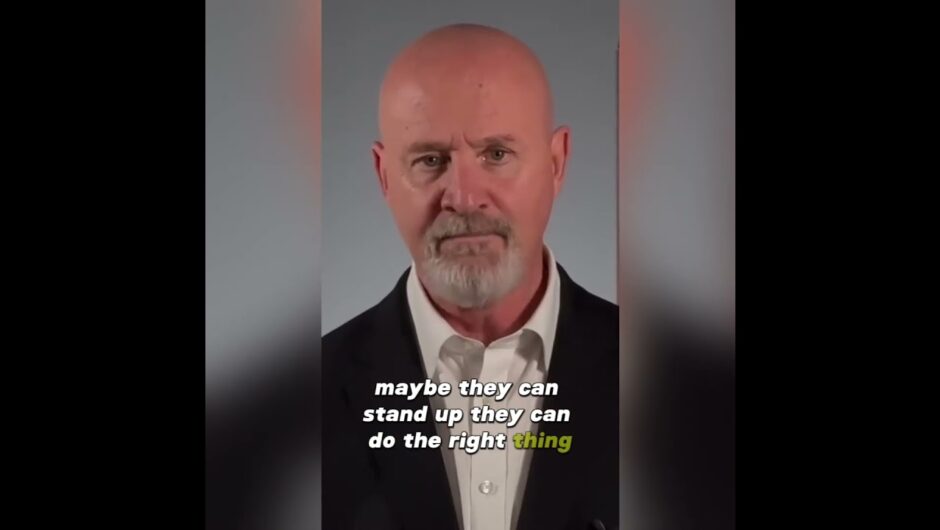The NRL community is divided over a formal warning being handed to Shark’s prop Toby Rudolf following a comment he made degrading women during a live television interview.
Key points:
- Rudolf made the comment while speaking on live TV after a game
- Current and former players said his sanction could cause players to hide their personalities
- Women’s rights group, Our Watch, said his comments reinforce sexist attitudes
Appearing on The Matty Johns Show on Sunday, and asked how he planned to celebrate the Sharks’ win over the Dragons, Rudolf responded: “Probably about 1000 beers. Probably go to Northies, try and pull something — anything will do.
He quickly continued: “No, honestly, it’s all about recovery these days. I’ll be going straight home, straight to the ice bath and staying very, very quiet.”
On Tuesday, it was reported that NRL chief executive Andrew Abdo had issued Rudolf a written warning, condemning his comments.
“I was very disappointed with Toby’s comments, they were inappropriate and should not have been said,” Abdo said.
“Respect for women is one of the foundations of our society and our players, as role models, need to be leaders in this area.”
The warning set a new precedent reminding players to rethink their language when talking about women, drawing both support and criticism.
Patty Kinnsley, chief executive of Our Watch, a group that campaigns on violence against women and their children in Australia, said sexist jokes reflect and reinforce sexist attitudes.
“Sexist jokes may seem like a bit of ‘harmless banter’ or ‘just a bit of fun’, but if we let them go unchallenged, we are excusing, trivialising and condoning the kind of harmful gender stereotypes and discrimination against women that we know underpins violence,” she said.
Players past and present have jumped to Rudolf’s defence, saying his comment was simply a joke, but Kinnsley said society would no longer tolerate under-educated men.
“It can be difficult for some men to make the link between so-called jokes and broader gender inequality because it feels normalised, but really, Australia is moving on and recognising that there are many ways to be a man, that don’t rely on making degrading comments towards women or that have to be linked to displays of male sexual entitlement.”
Manly Sea Eagles skipper Daly Cherry-Evans said the formal warning would only serve to silence players.
AAP: Brendon Thorne
)“We want fan interaction, we want engagement in the game, we want people to love our sport. But we don’t want someone to be themselves,” The Rugby League Players Association (RLPA) director said.
“Good on him for speaking his mind and being himself.
“It’s a shame that there’s been repercussions for something that, I think for a lot of people, would be only looked at as just very light-hearted humour.”
Former player-turned-TV-pundit Bryan Fletcher, who asked the question to Rudolf, had a similar view to Cherry-Evans, which he expressed on his SEN morning radio show.
“It was so clearly a joke … you could tell by his body language as well,” Fletcher said on Tuesday.
“It’s so hard to get players after a game to act like they want to act.
“You know what’s going to happen now after this? The players are going to give their robotic, boring answers going forward. That’s not entertaining.”
Former Cronulla Sharks skipper Paul Gallen echoed Fletcher’s comments.
“That’s overstepping the mark (the issue of a formal warning),” Gallen told Wide World of Sports Radio on 2GB.
“You could tell he was joking. He actually said straight away, ‘Nah it’s all about recovery, I’ll be recovering for the next game’.
“I think it’s sad. I think it’s sad that people are going to complain about what he said.”
AAP Image: Julian Smith
)This debate comes after Monday’s ‘March 4Justice’, when tens of thousands of people marched across the country protesting against the sexual abuse and harassment of women in Australia.
The NRL had already begun to take action when dealing with inappropriate player behaviour — the interim stand-down rule, which has withstood multiple legal challenges, is an example of this.
The stand down rule, which the RLPA has fought against, was introduced in part to stop money exiting the game because of player behaviour and the game’s perceived negative attitude towards women.
The ARLC culture review, which is due in a matter of months, has looked at this connection between gender inequality, sexism and violence against women in the game —an ugly attitude and behaviour the NRL wants to stamp out.






